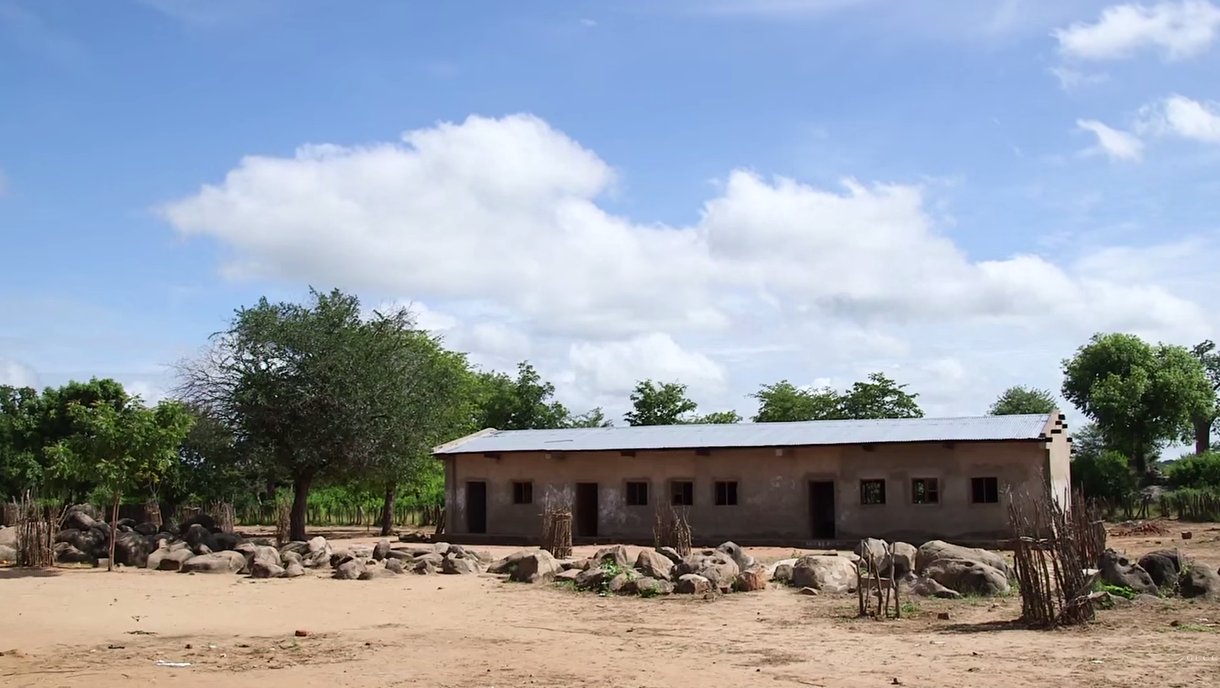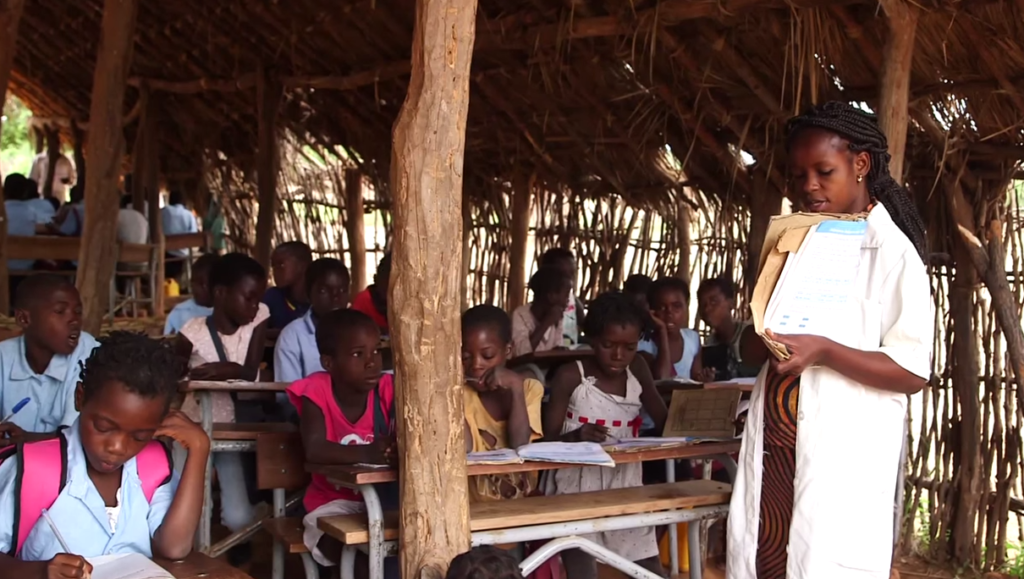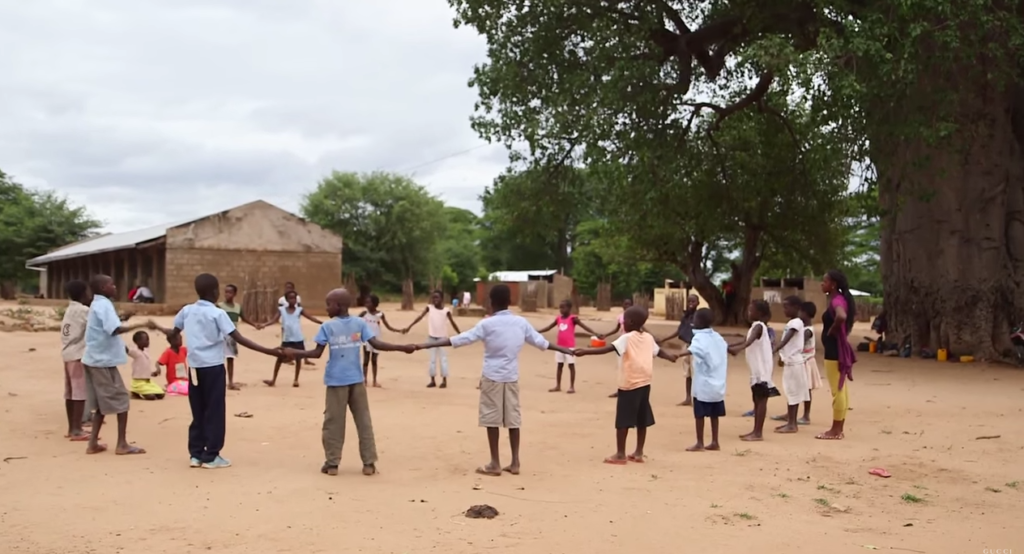Gucci and UNICEF Celebrate 10 Years with Film

Photo courtesy of Gucci / Growing Tall
In the dirt schoolyard of a rural school in the Changara District of Mozambique, 21 primary school-aged children form a circle, hands interlaced. In excitement, they swing their outstretched arms before two kids weave in and out of their circle launching the game. Standing among them in yellow capris and a sweater is Suzanna Antonia Marcos, their teacher. Even though she’s at least a foot taller than her students, she hardly stands out as she grins, waiting to see how they will surprise her next.
“One must play with children,” she says, thinking of her quieter students. “They must not think of you just as a teacher. When you are with children, part of you must remain a child as well.”
This is the story of the Nvuze school told through Growing Tall, a short film by Christina Voros released June 2 to celebrate the tenth anniversary and success of a partnership between GBC-Ed member Gucci and UNICEF.
When Marcos was in primary school, there were no female teachers – only men. In middle school, though, she befriended her female teacher and they grew close, “like sisters.” “That was when I realized that women could do it too,” she says. “That one could be a woman and teach.”
Seven years ago when she started teaching at Nvuze, a leading primary school in the district funded by a partnership between UNICEF and Gucci, things were just beginning to change. Through their collaboration, the school increased its enrollment to 934 students. This is in part due to the school’s feeding program which provides food so the students don’t have to leave early from hunger. In 2008, UNICEF estimated
that 41 percent of children in Mozambique suffer from chronic malnutrition. Providing midday meals not only helps combat hunger, but provides an incentive for children to attend school. One meta-study of 32 sub-Saharan African countries published in UNESCO’s 2015 Global Monitoring Report found that the addition of on-site meals increased school enrollment by at least 22 percent. With Gucci’s support for education came the opportunity for girls to attend classes during the day, rather than tend to babies, cook and fetch water.
“Before, we did not have running water. We didn’t have electricity. We didn’t have all these classrooms,” says Narcisia Gervasio, a female school council member at Nvuze. “Now when children come to school they can have food. This is a big change.”
Since its launch in 2005, the ten-year partnership between the luxury fashion brand and the children’s rights agency has resulted in 294 classrooms to be constructed, 8,708 teachers to be trained and 1,856 water and sanitation facilities to be built. Folded into Gucci’s larger CHIME FOR CHANGE
campaign, which focuses on uniting stakeholders advocating for women around the world, the initiative concentrates mainly on Malawi and Mozambique, where the Nvuze school has evolved.
To date, Gucci’s efforts have reached more than 7.5 million children and have raised more than $20 million for UNICEF, making their partnership the most extensive philanthropic undertaking in the brand’s history. Their most recent efforts are now directed north of Mozambique: Since their launch of ‘CHIME for the Children of Syria’ in April, the Gucci-UNICEF collaboration is focusing on supporting learning for Syrian refugees.
It is public-private partnerships like theirs that allow students like Marcos’ to aspire towards a productive future. Learn more about how businesses can partner to improve the impact of their investments in education here.


